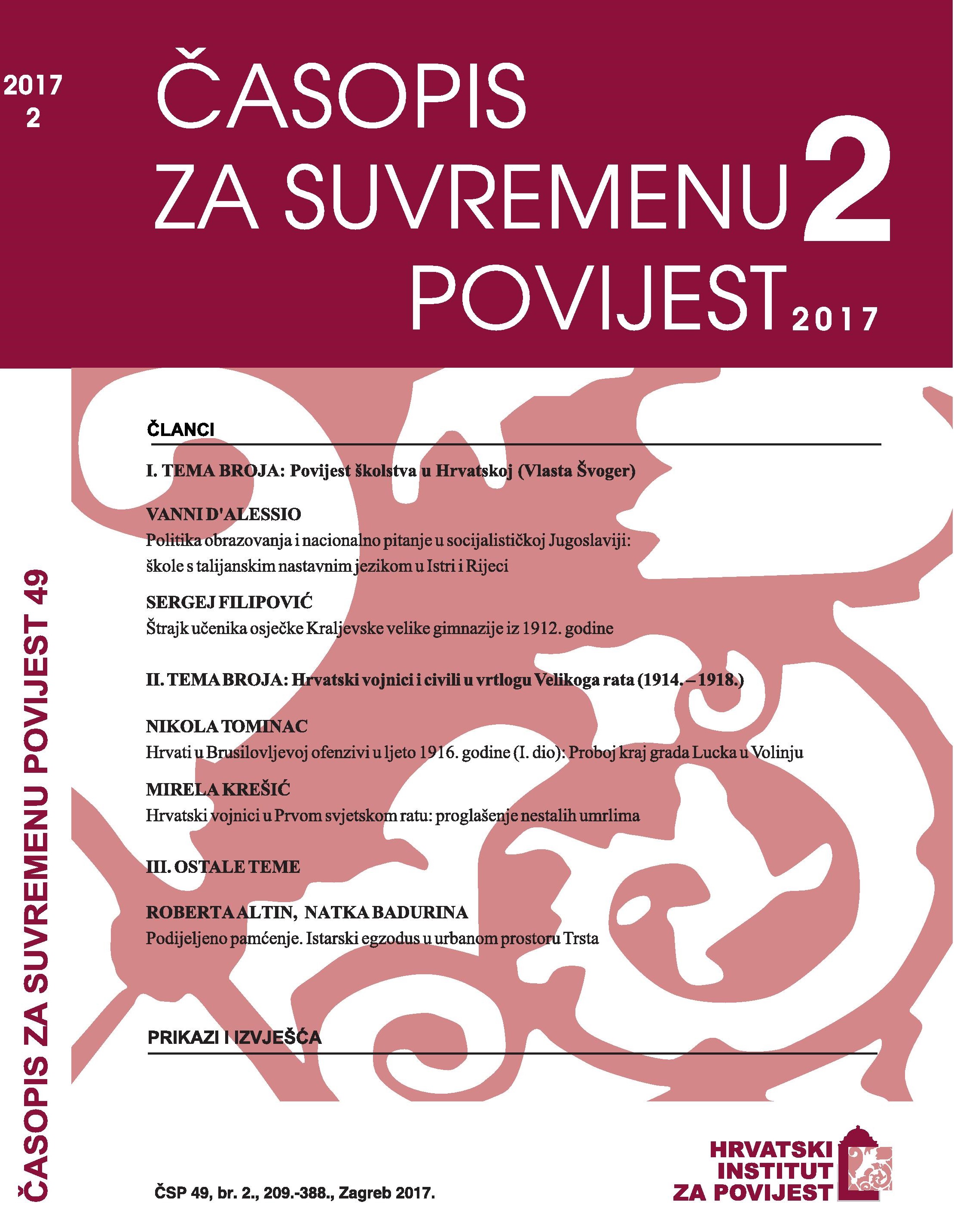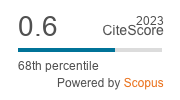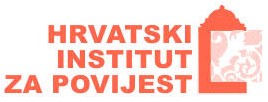Education Policy and the National Question in Socialist Yugoslavia: Italian Language Schools in Istria and Rijeka
DOI:
https://doi.org/10.22586/csp.v49i2.46Keywords:
Rijeka; Istria; schooling; national minorities; national question; YugoslaviaAbstract
The article addresses the questions of national politics towards minorities in plurilingual areas and also discusses the issues of national belonging, determinacy, and indifference in state transition. Concretely, it analyzes the integration of the Italian-speaking population in Yugoslav Croatia after World War II in the case of schooling in the Italian language. The Upper Adriatic is one of those Central European mixed areas in which the central and local government bodies of the 20th century post-Habsburg successor states intensively tried to obfuscate transnational practices and belongings. Unlike Fascist Italy, the Yugoslav Republic of Croatia granted minority schooling to its citizens, leaving to the Istrian and Rijeka families the possibility of choosing between Italian and Croatian as the language of education for their children. This choice was still possible after the huge exodus of people who opted for Italian citizenship after World War II but, during the political tensions with Italy in the early 1950s, the government of socialist Croatia reduced the degree of this freedom by trying to limit access to these schools only to declared Italians and by abolishing many elementary and all Italian-language technical and professional high schools, consequently persuading many families to prefer the Croatian language schools. On the other hand, choosing a school in the language of the titular nation was also a deliberately strategic and integrative choice made by families, even by those who were mixed or spoke the local Venetian dialect on an everyday basis at home and in other areas of socialization. This article discusses instances, strategies, and policies of local and central authorities, and of members and institutions of the Italian minority, towards assimilation, dissimilation, and isolation of the Italian-speaking group.
Downloads
Published
How to Cite
Issue
Section
License
Copyright (c) 2017 authors and journal

This work is licensed under a Creative Commons Attribution-NonCommercial 4.0 International License.
Copyright holders are the publisher Croatian Institute of History and the authors. Journal of Contemporary History is an Open Access journal. Users are allowed to read, download, copy, redistribute, print, search and link to material, and alter, transform, or build upon the material, or use them for any other lawful purpose as long as they attribute the source in an appropriate manner according to the Creative Commons licence CC BY-NC. The papers published in Journal of Contemporary History can be deposited and self-archived in the institutional and thematic repositories providing the link to the journal's web pages and HRČAK. Journal does not charge article processing charges (APC). The editors assume no responsibility for statements of fact or opinion made by contributors.




